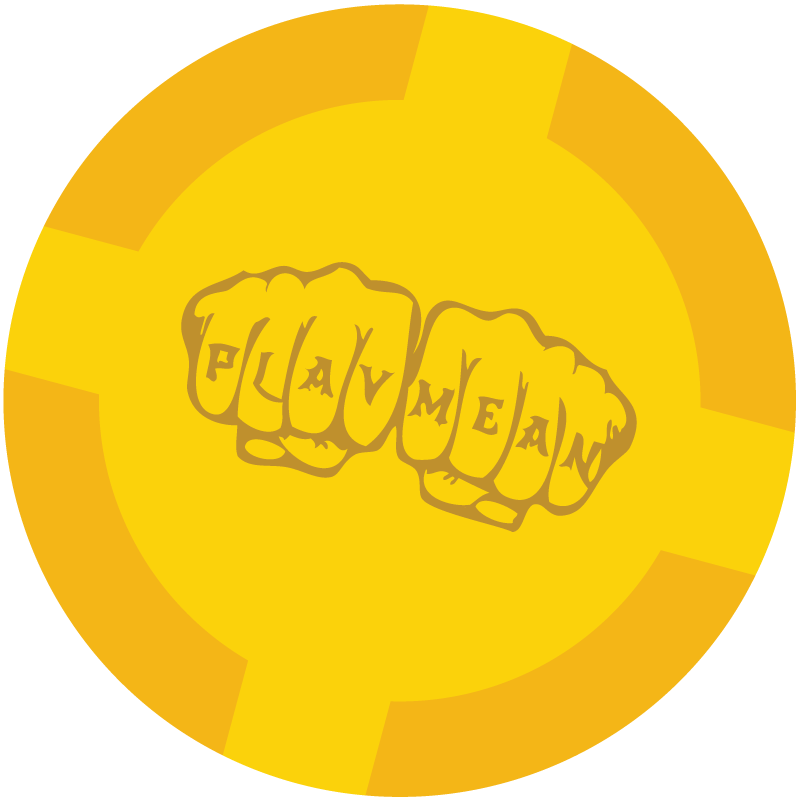Our first task in MTT poker is getting solid – which really means different things of course depending on our average buy-in, as the villains toughen up and have different kinds of vulnerabilities requiring different angles of attack. For now let’s assume we’re talking predominantly about the micros and the smaller mid games, although a lot of what we’ll explore further in to this series (and some of what we’ll look at today) will apply equally well to all stakes.
Firstly, what do we mean by solid?
Well we don’t mean sick. We don’t mean capable of pulling off crazy 6bet bluffs against other crazy good regulars in EPT events. At the lower stakes, both in MTTs and cash, all you need to achieve the status of being a solid player is to have good poker fundamentals, good execution in game, to play your “A game” consistently and to understand your opponents decently well.
we don’t mean sick. We don’t mean capable of pulling off crazy 6bet bluffs against other crazy good regulars in EPT events. At the lower stakes, both in MTTs and cash, all you need to achieve the status of being a solid player is to have good poker fundamentals, good execution in game, to play your “A game” consistently and to understand your opponents decently well.
This is plenty enough to master at first and takes a lot of study and engagement with poker in itself, and what it adds up to is a solid ABC poker game which while it won’t win any awards for ambitious or creative play will get you solidly profitable against the fields you play. Playing flashy or fancy against terrible opponents (90%+ of those you’ll face in the micros) is usually a bad mistake in fact.
First off, get solid. Learn the language of MTT poker words and how to speak it before trying to compose your greatest works. Your first audiences of villains won’t get it anyway, it’ll go straight over their heads since they’re at ground level, and trying to level the ground itself is an absurd and humiliating experience which will only bring you down with a hard bump.
Learning How to Learn
It is true that there’s no replacement for sheer play, and putting in time on the poker grind is undoubtedly a major part of getting really solid and getting genuinely good. But if you’re playing on semi-autopilot, reiterating plays you’ve seen or read about without really thinking them through for yourself, the rate at which you learn from your own play will be seriously diminished.
In order to learn at any decent rate through simply playing we must play consciously, we must consider our options in game and be able to explain to ourselves why we take a given line. We should always have a reason which can be clearly expressed as to why we take a certain action in game. It needn’t even be the “best possible” reason provided it’s something we can vocalize, criticize and reconsider later. If we don’t stay aware of this in game, our learning will crawl, as there will be no working relationship between our intuition (with which we learn intuitively all the time as we “soak up” experience) and our rational reflective thinking minds (with which we make these things conscious).
Of course on top of playing thoughtfully and consciously there is also the vital adjunct activity of studying the game away from the felt. This is something often neglected by players, as it is on the face of it less fun and less easy than simply playing. But once you get into studying poker you’ll be so glad you did so, both in terms of your bottom line profit from the game and your enjoyment and engagement with play.
My Own Take
I myself am better at teaching than I am at learning (!) given the background I have as a teacher of philosophy, critical thinking, numerical reasoning and several other subjects. I’m still working on learning efficiently in my own poker game, and certainly lean towards certain forms of learning which I enjoy more, and neglect others which are perhaps harder for me to engage with but just as much use. I tend to prioritize hand reviews with poker buddies and live hand discussions over detailed math review and time spent using Pokerstove and other useful pieces of software to self-review the mathematical detail of individual hands. Something I’m working on in my own game is scheduling different types of study to ensure I get this balance right in future.
myself am better at teaching than I am at learning (!) given the background I have as a teacher of philosophy, critical thinking, numerical reasoning and several other subjects. I’m still working on learning efficiently in my own poker game, and certainly lean towards certain forms of learning which I enjoy more, and neglect others which are perhaps harder for me to engage with but just as much use. I tend to prioritize hand reviews with poker buddies and live hand discussions over detailed math review and time spent using Pokerstove and other useful pieces of software to self-review the mathematical detail of individual hands. Something I’m working on in my own game is scheduling different types of study to ensure I get this balance right in future.
Next Time
In the next section I’ll go over strategies for MTT leak-busting, a discussion of how best to approach reviewing your own hand histories, and start to break down some of the key factors we must weight as we make specific decisions in an MTT.
By LuckyLuke


